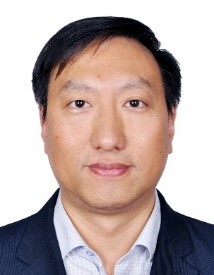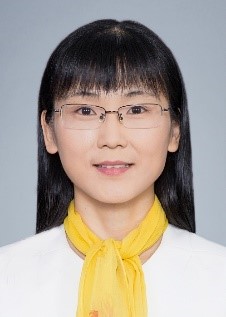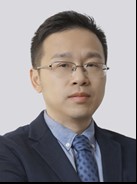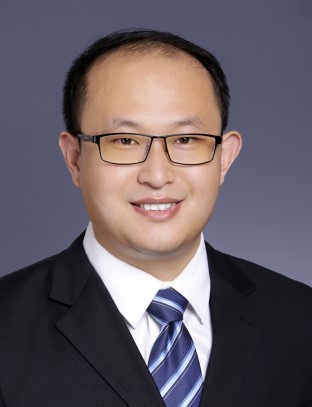Modeling, Optimization and Control of Complex Systems Organizer: Xueyan Zhao, South China University of Technology Hongli Dong, Northeast Petroleum University |
Panelists:
Jinhu Lü(Beihang University, China)
Chunhui Zhao(Zhejiang University, China)
Jianbin Qiu(Harbin Institute of Technology, China)
Yang Tang(East China University of Science and Technology, China)
Xiao He(Tsinghua University, China)
Abstract: Complex systems widely exist in various fields, such as aerospace, energy, transportation, intelligent manufacturing, finance and so on. With the continuous development of technology and the wide application of artificial intelligence technology, the modeling and optimization of complex systems have gradually become the key to solving practical problems. Through the in-depth study of complex systems, it is possible to better understand the intrinsic laws, optimize resource allocation, improve efficiency, and effectively control the systems. This forum invites distinguished experts, all authoritative and highly influential scholars in the field of complex system control, to discuss topics including the modeling of complex systems, optimization and scheduling, intelligent control and decision-making, intelligent perception, industrial applications of complex system theory, and cutting-edge advancements. Together, they will explore modeling methodologies, optimization techniques, and control strategies for complex systems, examine the interplay between complex system theory and artificial intelligence, share the latest research findings, and address frontier challenges.
 Speaker: Jinhu Lü, Beihang University.
Speaker: Jinhu Lü, Beihang University.
Title: Cooperative Control of Complex Systems and Its Applications
Abstract: Complex systems are the frontier of global scientific research, involving numerous fields such as natural sciences, engineering, and technological sciences. Breakthroughs about the structure, modeling, and mechanisms of complex systems have been honored with three Nobel Prizes. Cooperative control of complex systems explores how to design and leverage information sharing and interactions among subsystems to achieve emergent collective intelligence surpassing individual capabilities. It serves as a fundamental methodology for efficient collaboration in complex systems.
This presentation will systematically introduce novel approaches in complex systems, including pinning cooperative control theory for complex networks, consensus control in dynamical systems, coordinated control under network bandwidth constraints and safety-critical limitations, and intelligent sensing technologies. Its applications in engineering will be highlighted. Finally, emerging trends in cooperative control and intelligent perception will be discussed.
Bio: Jinhu Lü is the Vice-President for scientific research with Beihang University. He is/was the Leading Scientist of the Innovative Research Groups, National Natural Science Foundation of China, the President of Chinese National Science and Technology Innovation Leading Talents Alliance, the Vice-President of Chinese Institute of Command and Control (CICC) and China Simulation Federation (CSF), the Executive Council Member of Chinese Association of Automation (CAA). His current research interests include cooperation control, industrial Internet, and complex networks. He hosted multiple 100+million National Industrial Internet Major Projects and National Key Research and Development Program, etc. He was a recipient of the prestigious Ho Leung Ho Lee Foundation Award, the National Innovation Competition Award, the State Natural Science Award three times from the Chinese Government, the Second Prize of National Teaching Achievement Award, the National Natural Science Fund for Distinguished Young Scholars Award, the Guanghua Youth Award of Chinese Academy of Engineering, the Youth Scientist Award of Chinese Academy of Sciences, and the Highly Cited Researcher Award. He has also been selected as the World’s Top 2% Scientists list and Lifetime Scientific Influence Ranking list. He was the General Co-Chair of the 43rd Annual Conference of the IEEE Industrial Electronics Society in 2017. He is/was an Editor in various ranks for 16 SCI journals, including the Co-Editor-in-Chief of IEEE TII. He is the Fellow of IEEE/CAA/ORSC/CICC/CSIAM.
 Speaker: Chunhui Zhao, Zhejiang University
Speaker: Chunhui Zhao, Zhejiang University
Title: Balancing information asymmetry: Mixed Time Series Analysis Approaches and Typical Applications
Abstract: Typical industrial intelligent operation scenarios involve mixed time-series data, such as continuous measurement signals and discrete alarm events in cloud servers. The inconsistency in information granularity and distribution types between discrete and continuous variables introduces information asymmetry challenge. Mainstream causal discovery and temporal analysis methods, constrained by homogeneous variable assumptions, exhibit significantly limited efficacy in modeling cross-modality coupled mixed data.
To address temporal causal discovery and information asymmetry in mixed time series, this study pioneers the original concept of latent continuity recovery, rigorously exploring its theoretical guarantees, feasibility conditions, and technical implementations. We design a novel deep hybrid temporal causal discovery paradigm through variable embedding strategies, model training techniques, and sparse causal mining. This approach overcomes the bottleneck of identifying significant causal structures within unified information granularity and distribution spaces. The method achieves state-of-the-art performance on 16 datasets across five Granger causality benchmarks demonstrating superior causal discovery capabilities for real-world high-dimensional, nonlinear, hybrid-variable time-series data.
Building on this methodology, we propose more efficient and effective latent continuity recovery strategies and establish the first universal modeling framework for mixed time-series. The framework addresses the problem of high computational burden of exponential operation in Gaussian kernel embedding, and realizes task-oriented latent continuity recovery efficiently and flexibly by introducing inductive bias of temporal convolution, being suitable for larger scale time series data. Technically, it efficiently learns balanced spatiotemporal representations of mixed variables through adversarial/smoothing constraints, and self-cross attention mechanisms. Our framework achieves state-of-the-art performance on 34 real-world datasets across five mainstream tasks: forecasting, classification, regression, imputation, and anomaly detection.
Our research work received the Huawei Spark Award and were published in the IEEE TPAMI 2025 and NeurIPS 2024.
Bio: Chunhui Zhao, Qiushi Distinguished Professor, Recipient of the National Outstanding Youth Fund. She received Ph.D. degree from Northeastern University, China, in 2009. From 2009 to 2012, she was a Postdoctoral Fellow with the Hong Kong University of Science and Technology and the University of California, Santa Barbara, Los Angeles, CA, USA. From 2012 to 2014, she was a distinguished researcher with Zhejiang University and since Dec. 2014, she has been a Professor with the College of Control Science and Engineering, Zhejiang University, Hangzhou, China.
Her research interests include statistical machine learning and data mining for industrial application. She has authored or coauthored more than 250 papers in peer-reviewed international journals. She has published 3 monographs and two big data textbooks. She authorized more than 70 invention patents. She is principal investigator of a Distinguished Young Scholar Program supported by the Natural Science Foundation of China. She has hosted more than 20 scientific research projects, including the NSFC funds, National key R&D project, provincial projects and corporate cooperation projects. She has been awarded multiple research accolades, including the First Prize in Natural Science of Zhejiang Province (ranked first), the Natural Science Award from the Ministry of Education, the inaugural Youth Science and Technology Award of Zhejiang Province, and the First Prize in Natural Science from the Chinese Association of Automation. She has been honored with more than ten academic awards, including the China Young Female Scientist Award, the Model Woman Pacesetter of Zhejiang Province, the Fellow of the Chinese Association of Automation, and the inaugural CAA Young Female Scientist Award. She has served AE of three International Journals, including Journal of Process Control, Control Engineering Practice and Neurocomputing, and three domestic journals, including Control and Decision, etc.
 Speaker: Jianbin Qiu, Harbin Institute of Technology
Speaker: Jianbin Qiu, Harbin Institute of Technology
Title: Intelligent Perception and Autonomous Avoidance of Spacecraft Confronting Orbital Threats
Abstract: Spacecraft are high-value strategic assets, and their safe and stable in-orbit operation is the fundamental prerequisite for completing various tasks. Currently, the orbital space is becoming increasingly congested, with a sharp increase in collision risks. Space competition is intensifying, harassment is on the rise, and the number of threats continues to grow. The safe operation of spacecraft is facing severe challenges. At present, the orbital threats response measures heavily rely on ground support, featuring poor timeliness in handling threats and high operational control pressure, making it difficult to adapt to the deteriorating space situation. Therefore, it is urgent to develop the spacecraft’s autonomous avoidance ability against orbital threats and develop an integrated intelligent autonomous control system for orbital threat avoidance with an on-board closed-loop of “perception - decision – control”. This talk will introduce our research progress in recent years on the logical architecture analysis, modeling, and mission planning of the integrated control system for intelligent perception and autonomous avoidance of spacecraft confronting orbital threats.
Bio: Jianbin Qiu received the B.Eng. and Ph.D. degrees in Mechanical and Electrical Engineering from the University of Science and Technology of China, Hefei, China, in 2004 and 2009, respectively. He also received the Ph.D. degree in Mechatronics Engineering from the City University of Hong Kong, Kowloon, Hong Kong, in 2009.
He is currently a Full Professor at the School of Astronautics, Harbin Institute of Technology, Harbin, China. He was an Alexander von Humboldt Research Fellow at the Institute for Automatic Control and Complex Systems, University of Duisburg-Essen, Duisburg, Germany. His current research interests include intelligent and hybrid control systems, aerospace control, and robotics.
Prof. Qiu is a Fellow of IEEE and serves as the chair of the IEEE Industrial Electronics Society Harbin Chapter, China. He is an Associate Editor of IEEE Transactions on Fuzzy Systems, IEEE Transactions on Cybernetics, and IEEE Transactions on Industrial Informatics.
 Speaker: Yang Tang, East China University of Science and Technology
Speaker: Yang Tang, East China University of Science and Technology
Title: Intelligent optimization and decision-making for multi-agent systems
Abstract: At present, multi-agent systems are developing rapidly, showing enormous potential in areas such as energy resources and economic management. This report discusses the intelligent optimization and game decision-making problems of cluster systems, respectively, from two parts: distributed optimization and decision-making. Optimization considers three parts: distributed optimization, identification of key nodes, and optimization based on data-driven methods. In the case of considering asynchronous computation, communication burden of distributed optimization is reduced through event-triggered mechanisms, while also considering the identification of key nodes that play a dominant role in large-scale multi-agent systems. Considering the existence of uncertainty and inexplainability in the system, this report also explores how to optimize data-driven approaches. Multi-agent systems for games include analytical games and reinforcement learning-based games. Analytical games construct game models among cluster members through mathematical analysis to solve strategies, while reinforcement learning-based games emphasize solving game strategies using deep learning methods.
Bio: Yang Tang (Fellow, IEEE) received the B.S. and Ph.D. degrees in electrical engineering from Donghua University, Shanghai, China, in 2006 and 2010, respectively. From 2008 to 2010, he was a Research Associate with The Hong Kong Polytechnic University, Hong Kong. From 2011 to 2015, he was a Post-Doctoral Researcher with the Humboldt University of Berlin, Berlin, Germany, and with the Potsdam Institute for Climate Impact Research, Potsdam, Germany. He is now a Professor with the East China University of Science and Technology, Shanghai. His current research interests include distributed estimation/control/optimization, computer vision, reinforcement learning, cyber-physical systems, hybrid dynamical systems, and their applications.
Prof. Tang is an IEEE Fellow. He was a recipient of the Alexander von Humboldt Fellowship. He is an Senior Area Editor of IEEE Transactions on Circuits and Systems-I: Regular Papers, Associate Editor of IEEE Transactions on Neural Networks and Learning Systems, IEEE Transactions on Cybernetics, IEEE Transactions on Industrial Informatics, IEEE/ASME Transactions on Mechatronics, IEEE Transactions on Circuits and Systems-I: Regular Papers, IEEE Transactions on Cognitive and Developmental Systems, IEEE Transactions on Emerging Topics in Computational Intelligence, IEEE Systems Journal, Engineering Applications of Artificial Intelligence (IFAC Journal), Science China Information Sciences and Acta Automatica Sinica, etc. He has published more than 200 papers in international journals and conferences, including more than 130 papers in IEEE Transactions and 20 papers in IFAC journals. He has been awarded as best/outstanding Associate Editor in IEEE journals for four times. He is a (leading) guest editor for several special issues focusing on autonomous systems, robotics, and industrial intelligence in IEEE Transactions.
 Speaker: Xiao He, Tsinghua University
Speaker: Xiao He, Tsinghua University
Title: Active fault detection and diagnosis of dynamic systems
Abstract: After half a century of development, fault diagnosis technology for dynamic systems has made significant progress, with research findings being applied in multiple fields to effectively enhance system operational safety. However, existing fault diagnosis research findings have mostly been achieved within a ‘passive’ framework, meaning that the fault diagnosis process only uses the system's input and output signals to identify faults without affecting the system's original operation. Active fault diagnosis technology employs additional auxiliary signals to stimulate the system, thereby enhancing the diagnosability of specific faults to a certain extent. This research direction has garnered increasing attention from scholars over the past five years. This report will elucidate the principles and current state of active fault diagnosis, introduce the latest research achievements of our research group in the field of active fault diagnosis for the “Jiaolong” deep-sea manned submersible, and explore future development directions for active fault diagnosis.
Bio: Xiao He is a tenured professor at the Department of Automation, Tsinghua University, Director of the Centre for Safety Control Technology Research, and Head of the Key Area Innovation Team under the Ministry of Transport. His research interests include state estimation, fault diagnosis, fault-tolerant control, and real-time safety assessment of dynamic systems. He has published over 300 papers in domestic and international journals and conferences. He has led one National Natural Science Foundation of China (NSFC) Key Project and three NSFC General Projects. In 2015, he received the NSFC Outstanding Young Investigator Fund, and in 2021, he was awarded the 7th Young Scientist Award of Chinese Association of Automation (CAA). He is currently an IEEE Senior Member, a Full Member of the American Sigma Xi Honorary Research Society, Deputy Director and Secretary-General of the Fault Diagnosis Special Committee, Deputy Director of the Process Control Special Committee both of the CAA, Deputy Director of the Cloud Control and Decision-Making Special Committee, Deputy Director of the Intelligent Control and Systems Special Committee both of the Chinese Institute of Command and Control, and Executive Council Member of the Beijing Association of Automation. He serves as an editorial board member for several international journals, including IEEE TNNLS, IEEE TASE and Control Engineering Practice. In 2012, he was nominated for the Paul Frank Best Theoretical Paper Award at the SAFEPROCESS International Conference. In 2021, he received the Fang Chongzhi Best Paper First Prize. In 2022 and 2023, he was awarded the Zhongjun Zhang Outstanding Paper Award twice. He has received the First Prize of the Jilin Province Science and Technology Progress Award in 2018, the First Prize of the Natural Science Award of the Chinese Automation Society in 2015 and 2020, the First Prize of the Technical Invention Award of the Chinese Automation Society in 2022, and the Second Prize of the Beijing Natural Science Award in 2023. The doctoral students he has supervised (including co-supervised) have won the Outstanding Doctoral Dissertation Award of the CAA in 2018, 2021, 2022, and 2024